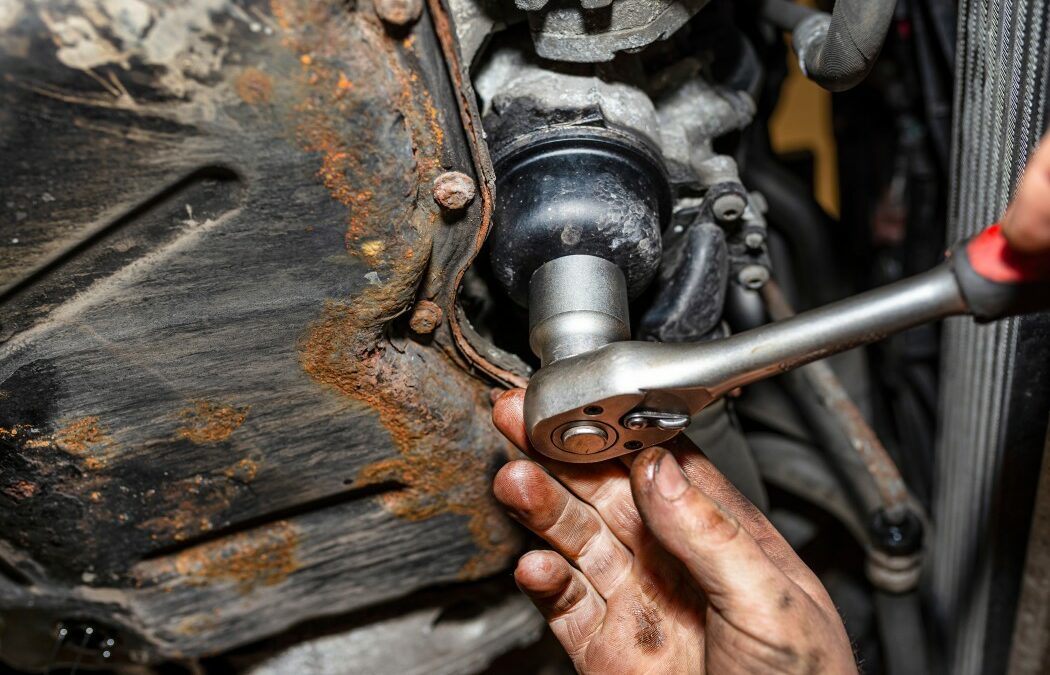Diesel engines are dynamic machines that are popular for their fuel efficiency, horsepower, and acceleration speed. Whether you drive a diesel vehicle for your job, or they are your personal preference, you must take good care of your diesel engine if you expect optimal performance. They are also complicated machines, but regardless of your degree of understanding there are several steps you can take to ensure that your diesel engine runs efficiently and lasts a long time.
The Importance of Oil
Oil lubricates your engine, protecting the parts, reducing friction, and keeping the engine cool. It is important that you choose the right oil for your vehicle and change it routinely to keep your engine clean and running efficiently. There are many different types of oils available on the market, and they vary by formula and viscosity, so choosing an oil at random is not advisable. Use the oil recommended at your vehicle’s time of purchase or follow the advice of a mechanic when making your selection.
Changing your oil regularly is just as important as choosing the right formula. Generally speaking, your vehicle’s oil should be changed every 3,000-5,000 miles, but this number varies based on what you use your diesel vehicle for. Vehicles that carry or tow heavy loads will require more frequent oil changes. Allowing your oil to get too low can result in overheating or damage caused by friction between parts, so staying on top of your oil changes will protect and prolong the life of your diesel engine.
Clean the Engine Air Filter
The engine air filter keeps dirt and debris out of your engine, making sure it stays clean and runs efficiently. A dirty or old air filter can allow harmful contaminants into parts of your engine, choking your engine and reducing fuel efficiency. Check your air filters regularly, especially if you drive in dusty or dirty conditions on a regular basis and replace them when necessary. Replacing a diesel engine air filter is also relatively cheap compared to the issues that a dysfunctional filter could cause.
Change Fuel Filters
The fuel filter’s job is to filter out any impurities in the fuel before it reaches the fuel injectors and enters your engine. Like your oil, your fuel filter should be routinely replaced. The recommended distance between replacements is 10,000-15,000 miles, and they can easily be changed by your mechanic during routine maintenance. If a mechanic changes your oil, it’s a good idea to ask them to look at your fuel filter while you’re there. Additionally, if your vehicle is having difficulty starting or it feels bumpy when you reach high speeds this may be an indicator that your fuel filter needs to be replaced. A well-functioning fuel filter will keep your engine clean and running smoothly.
Monitor your Coolant
Coolant keeps your engine from overheating, but this helpful substance can turn harmful if left unmonitored. Coolant becomes acidic and can cause damage to other components of your vehicle’s cooling system if it is not flushed out and replaced on an appropriate schedule. It can be easy to forget to replace coolant because you don’t have to do so as frequently as your oil and filters, but monitoring it is still an important part of preserving your diesel engine. Coolant should be replaced every 50,000-60,000 miles.
Avoid “Running on Empty”
We’ve all ignored the little red hand on the dashboard until it drops below “E”. You may think that the only risk you’re running is being stranded on the side of the road, but driving on fumes can also cause permanent damage to your engine. Dust, dirt, and debris sink down in your fuel tank and accumulate at the bottom over time. Driving when your vehicle is nearly empty will send these impurities through your engine which can cause build-up on parts of your engine and reduce its overall efficiency if done repeatedly. As a diesel driver, you should get in the habit of refilling your tank well before it is empty to avoid causing senseless harm to your diesel engine.
Listen to What Your Vehicle is Telling You
People often make the mistake of sweeping engine issues under the rug because they don’t want to pay for repairs, but the consequences of doing so are often much more expensive. In most cases, your vehicle will let you know that something small is wrong with your engine before it snowballs into a serious and costly issue. Dashboard lights should never be ignored, and if your car is making an unfamiliar noise, smell, or feels differently when you drive, visit a mechanic immediately. Ignoring these signs is not only dangerous, but it can also lead to irreversible damage and expensive repairs that were completely avoidable. Keep in mind that fixing a minor issue is always cheaper than replacing your entire engine.
Regular Professional Engine Maintenance
The best way to ensure that your diesel engine is in tip-top shape is to consult a diesel mechanic. You don’t need to wait for a problem to arise to consult a mechanic; prevent problems and catch issues early with regular engine maintenance. Develop a routine of periodic maintenance and keep track of your mileage so you know when your vehicle may need attention. A trustworthy mechanic will offer you their professional advice for how to best maintain or even improve the efficiency of your diesel engine.
Certified Diesel Solutions
The expertly trained and ASE certified professionals at Certified Diesel Solutions have the knowledge and skills to provide top of the line preventative maintenance and repair services for diesel drivers in East Tennessee. Certified Diesel Solutions has been a trusted name in diesel mechanics for over 10 years. Whether you own a diesel vehicle personally, drive a diesel truck for a living, or need diesel mechanic services for your entire business, CDS is the right fit for you.
To contact Certified Diesel Solutions, call (865)964-6598 or fill out an information form online at cdspros.com.

